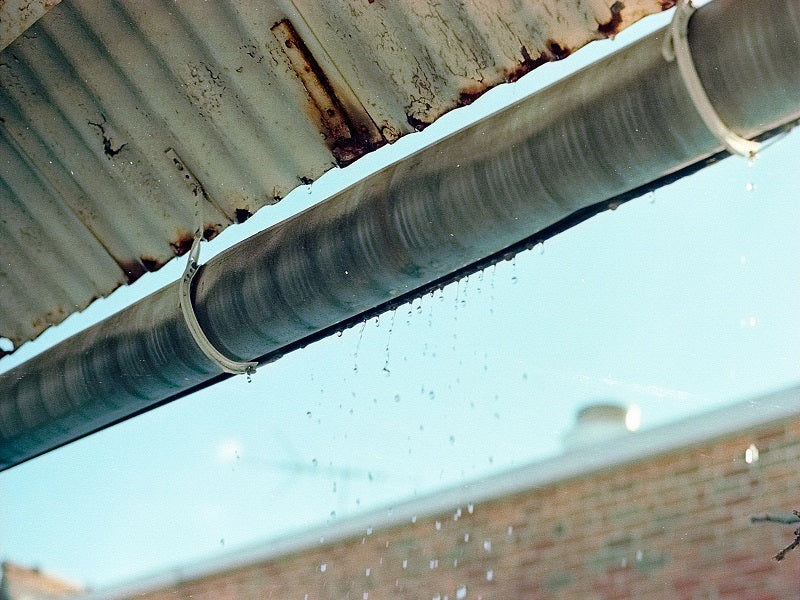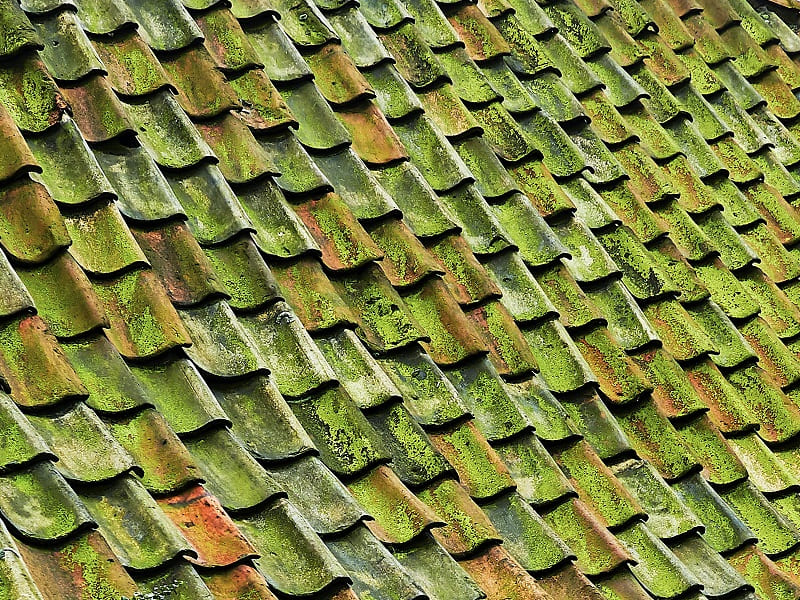Why Do Houses Have Gutters?
Explore the vital reasons why do houses have gutters, from preventing foundation erosion and basement flooding to maintaining a clean appearance.
Gutters funnel the water that hits your roof into a single flow that travels away from your home, controlling the flow. In the absence of gutters, water runoff may accumulate around your house, seep into your foundation, and eventually result in water damage. Without regular cleaning, gutters cannot properly divert water from your roof; in fact, gutter damage can do more harm than no gutters at all, as they can allow water to collect along your roof.
Gutter systems not only divert water but also manage runoff, which reduces erosion. This safeguards any landscaping that surrounds a property, yet it makes sense that if there is none, the situation might not be as serious.
Understanding Rain Gutters
A gutter's primary purpose is to allow water a route to go in another direction. Their purpose is to direct water towards a safe region or drain, hence reducing erosion. Gutters can overflow and have a limited capacity, but they are still quite effective at removing a lot of water. Rain gutters are often composed of plastic, copper, or aluminum and are attached to your roof.
How Do Gutters Work?
Rainwater runs down your roof and into the gutters that run along the edge of the roof. Where it leaves your property, this water is directed through downspouts. The gutter lessens the ground's erosion against your house and can significantly lower the chance of foundation problems and basement flooding by diverting rainfall. In certain cases, during dry weather, the downspout drains into a tank or barrels for garden use.
Why Do Houses Have Gutters?
Gutters assist you in being a proactive homeowner by averting future problems that may result in higher expenses. Here are a few justifications for gutters on homes.
Keep Individuals Dry
It goes without saying that you do not want to walk into or out of your house and get wet from a falling waterfall. Rainwater is collected by gutters from your roof and sent to the ground so that it doesn't spill everywhere. Their function is to redirect rainwater from your roof to the ground controllably.
Avoid Basement Flooding
Rain can collect around the foundation of your house without gutters, seep into basements via gaps, and result in flooding issues. Gutters effectively divert water away from your home and onto lower ground and drains, preventing unmanageable seepage. This is because a downspout, a curved component linked to the gutter's terminus, directs water onto a splash block. The splash block is grounded, decelerates the stream of water, and safely diverts it away from the foundation of your house.
Create a Clean Look
Water splattering off of your home's exterior and leaving residue might seem messy. This will make your house seem unkempt over time, requiring you to clean up the debris frequently. Additionally, it may cause paint to peel away, necessitating a final external repaint. Gutters collect rainwater, maintaining the pristine appearance of your property without further work. Learn how to clean your gutters quickly to keep them looking nice as well.
Eliminate Insects
Damp places with standing water draw pests like termites, mosquitoes, and other insects. If gutters aren't there to divert water away from your house, it might attract a lot of pests. The insects that surround your home might be bothersome and unpleasant. Furthermore, they may even begin to nibble away at the outside of your house. By diverting water away from the roof and residence, covered downspouts and gutters lessen the chance of standing water and a rise in insect activity.
Prevent Decay
Tar paper and plywood are not entirely waterproof materials that may be used to line the outside of your home and the roof. Water may ultimately seep beneath siding and shingles because they are put in segments over these materials, which may have gaps and move over time. Siding and roofing that have been overly wet might start to decay and even rot when water breaks in. Over time, materials may ultimately degrade and crack, thus causing your home to come apart. Rain gutters divert water away from your home, preventing these issues and preserving the structural integrity of your building.
Protect Against Mould
Because of humidity and inadequate ventilation, mould is likely to grow in unwelcome areas of your home's exterior when it collects excessive moisture. Drywall may serve as both a food supply and a breeding ground for mould when water escapes through walls. If mould is not properly handled, it may be hazardous to your house and difficult to eliminate. Rain gutters may lessen the amount of water that rushes into your home, which will reduce the likelihood that mould will grow.
Defend Your Landscape
Water that collects in pools on your roof is likely to rush off into your yard, where strong currents may harm your landscaping. Moreover, a lot of water can erode the soil, weakening the foundation of your house. Rain gutters let you manage how much water enters your yard, which is beneficial for your vegetation, plants, and grass. By building a gutter system that compels water to flow away from your foundation rather than onto your landscaping, you may divert water away from it.
What Will Happen If Gutters Are Not Installed At Your House?
Rainwater that cascades from your roof is collected by gutter systems and directed through downspouts away from your house. Every time it rains, there's a greater chance of damage if there are no gutters. This is what occurs if your home is without gutters.
Erosion In Foundations
Usually, home sites are sloped to guarantee that water runs off the foundation. Without a gutter system, water may still pool around the foundation, even on well-graded sites. In order to stop erosion, which can harm foundations, gutters direct water away from residences. To help control runoff, gutter systems can be paired with drainage pipes, gravel, and splash blocks.
Washedout Landscapes and Gardens
Many houses include landscaping that both improves the appearance from the outside and controls erosion. Water can collect in gutters, oversaturate plant roots, and damage the soil. Flowers, bushes, and other landscaping surrounding the foundation area will eventually wither away. Gutters shield the foundation from erosion and overwatering, maintaining the aesthetic appeal of the landscape.
Flooding in a Basement
The soil adjacent to the basement walls can get so saturated that it exerts extreme pressure on the outside walls. Water will ultimately enter the basement through fractures and other damage brought on by the increased pressure. The gradual degradation encourages the growth of mould, and basement flooding may need expensive repairs.
Broken Siding
Rainwater carrying dirt, asphalt particles, and leaves down the side can cause unsightly stains. Your house seems unclean and dreary when the siding is stained and discolored. Rainwater streams have the potential to damage siding, particularly wood siding. In your home, rotted siding may provide openings for vermin to enter. The buildup of water may compromise the structural integrity of your house, necessitating costly repairs.
So this article is a simple answer to your query: why do houses have gutters?
Why Do Houses In Texas Not Have Gutters?
Rain gutters could be an unnecessary cost in Texas. For example, El Paso receives an average of about 8 inches of rain each year. Because of this, gutters are not worth the hassle.
Bottom-Line
In summary, gutters are necessary to divert rainfall away and stop rotting basement flooding and foundation erosion. They protect the facade of the house from mould and preserve the landscape. Gutter repair is vital because homes without them run the danger of erosion, landscaping damage, and structural problems.




Leave a comment
This site is protected by hCaptcha and the hCaptcha Privacy Policy and Terms of Service apply.